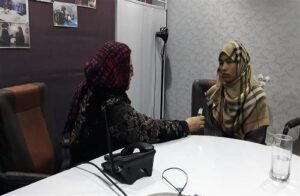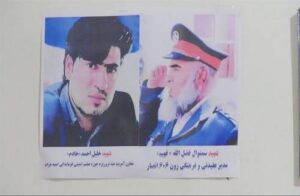
KANDAHAR CITY (SW) – Young Siddiqullah, a victim of human trafficking, was raised by his poor farmer parents under tough circumstances in Kandahar province.
When he became a young man, his parents arranged for his engagement, however, his father-in-law demanded up to AFN 500,000 ‘walwar’ for dowry.
For years, his family survived on poppy cultivation, but the lowering of under-ground water and curbs on poppy cultivation compelled Siddiqullah to work as daily laborer in the market for a meager income of AFN 200 a day. This, however, was not enough to support the family, and save for the dowry fund.
Dejected and concerned, Siddiqullah met a couple of other Kandahar residents in the city one day who were equally frustrated with poverty and joblessness. On one man’s advice, he agrees to leave for Iran for the sake of work.
He did not have the money for the journey, but borrowed some AFN 5000 from his brother-in-law for the purpose. The next day, he joined the group of laborers who left for the border town of Nimroz after assuring his family that he would return in a year with enough income to pay for the dowry.
In a hotel in Nimroz, they were encountered by three men, wearing the traditional Balochi attire, who promised them safe and guaranteed travel to Zahedan city of Iran for AFN 3500, and they agreed. The men assembled a group of seven laborers, and lead them on a night-journey for at least two hours. Siddiqullah said the men also had guns.
The group rest for a while after which the human traffickers adopt a rather aggressive tone, and compel the group to cover the rest of the journey on foot. After a tiring walk for some four hours, the traffickers point to a town ‘Zahedan’ and ask the laborers to drink water and rest. The drink, however, makes them unconscious.
And, when they woke-up, all of their money and other valuable belongings were missing and they were left alone in a desert.
Siddiqullah said the traffickers informed police about them, and under brutal police torture, they admitted the false allegation of being drug peddlers. Siddiqullah said two of his companions died due to torture, and he too was beaten severely.
After witnessing all this in a foreign land, Siddiqullah is now ready to tolerate all hardships in his home country, but vows not to embark on the journey again.
The treatment of the Iranian border guard with the victims of human trafficking is against the spirit of the laws on human trafficking that call for cooperation among countries against human traffickers and for the welfare of refugees and asylum seekers. Article 27 of the law states: “The investigation and trial of suspected human traffickers are done through cooperation of regional and international organizations”.
Nek Mohammad Ahmadi, secretary of regional counter-human trafficking directorate in Kandahar, said in this regard that those found guilty of giving drugs or other harmful substance to the victims of human trafficking are eligible for eight years in prison.
The tragic tale of Siddiqullah is shared by many Afghans who seek desperate ways to leave the country in search for a meager income under harsh circumstances in other countries.
ENDS





